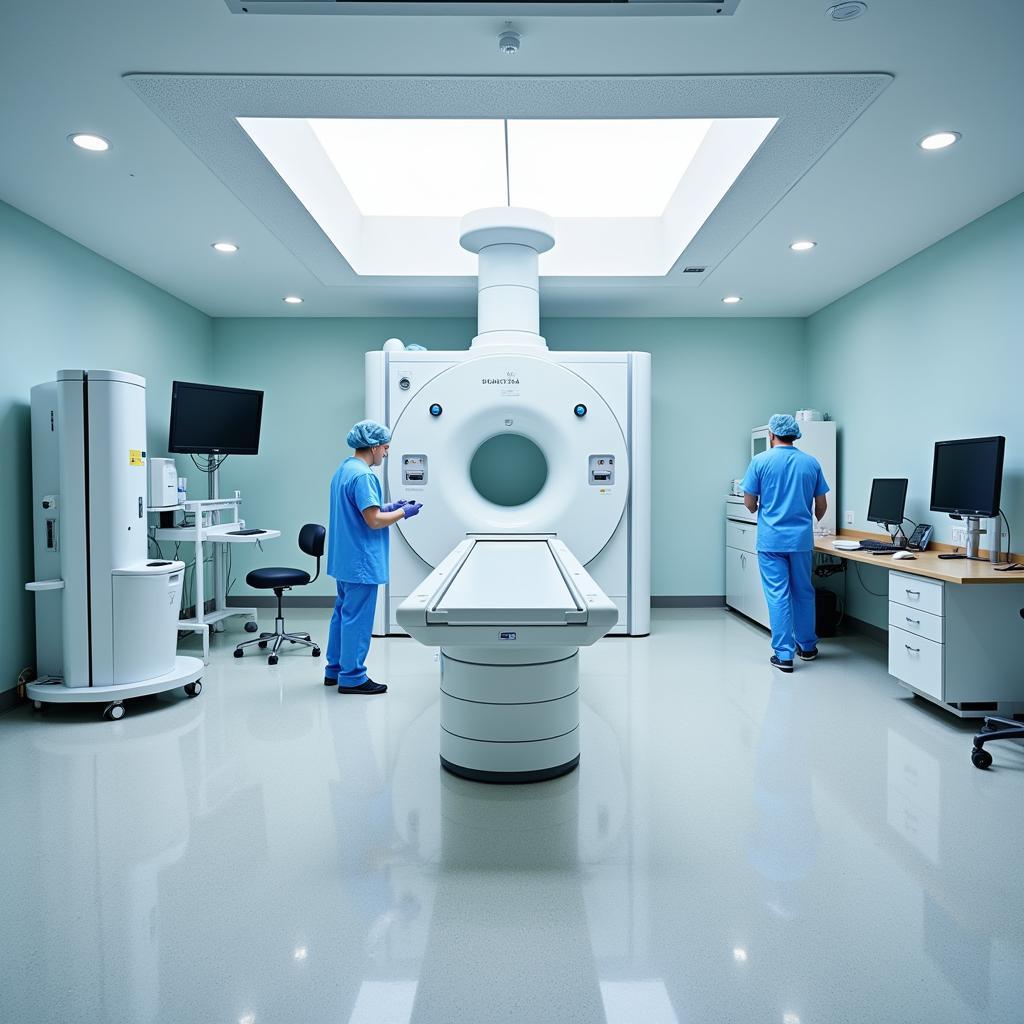Intermediate Hospitals play a crucial role in the healthcare ecosystem, bridging the gap between primary care facilities and larger, more specialized tertiary hospitals. They offer a wider range of services than primary care clinics, while still maintaining a focus on patient-centered care and community health needs. This article explores the importance of intermediate hospitals, the services they provide, and how they contribute to overall healthcare accessibility.
After visiting your primary care physician, they might recommend a visit to an intermediate hospital for more specialized testing or treatment. But what exactly does that mean? Intermediate hospitals, sometimes referred to as secondary care hospitals, provide a vital link in the chain of healthcare. They offer essential medical services that are not typically available in primary care settings, while avoiding the higher costs and often longer wait times associated with tertiary care centers. These facilities are particularly important for managing conditions that require a higher level of expertise and technology than a primary care clinic can offer, but don’t necessitate the highly specialized services of a major medical center.
What Services Do Intermediate Hospitals Offer?
Intermediate hospitals offer a diverse range of services designed to meet the needs of the community they serve. These services typically include:
- Emergency Services: 24/7 emergency care for a variety of illnesses and injuries, stabilizing patients before transfer if necessary.
- Surgical Procedures: A broad spectrum of surgical procedures, from common general surgery to more specialized procedures.
- Diagnostic Imaging: Advanced imaging technologies such as CT scans, MRI, and ultrasound to aid in diagnosis and treatment planning.
- Laboratory Services: Comprehensive laboratory testing for diagnosis and monitoring of various medical conditions.
- Inpatient Care: Short-term hospital stays for observation, treatment, and recovery.
- Outpatient Services: Specialized clinics and services for patients who do not require overnight stays.
- Rehabilitation Services: Physical, occupational, and speech therapy to help patients regain function and independence.
These services, combined with a focus on patient-centered care, make intermediate hospitals an essential resource for communities. They provide a crucial safety net for patients who require more advanced care than primary care can provide, while also ensuring access to timely and efficient healthcare services.
The Importance of Intermediate Hospitals in Healthcare Accessibility
Intermediate hospitals play a vital role in increasing healthcare accessibility, especially in underserved or rural areas. They are often located closer to patients’ homes than tertiary care centers, reducing travel time and expenses. This proximity is particularly crucial for patients with chronic conditions or mobility issues who require frequent medical attention. Furthermore, intermediate hospitals often serve as a crucial training ground for healthcare professionals, fostering a strong and capable medical workforce.
 Comfortable and modern patient room in an intermediate hospital
Comfortable and modern patient room in an intermediate hospital
Are you looking for specialized lens care? Check out our hospital de lentes.
Why Choose an Intermediate Hospital?
What sets intermediate hospitals apart is their ability to provide personalized care while still offering a broad range of services. The environment is generally less overwhelming than a large tertiary hospital, which can contribute to a more positive patient experience. This patient-centered approach, combined with efficient and timely care, makes intermediate hospitals an ideal choice for many medical needs.
- Personalized Care: A focus on individualized treatment plans and patient-centered care.
- Shorter Wait Times: Often quicker access to appointments and procedures compared to larger hospitals.
- Lower Costs: Generally more affordable than tertiary care centers for comparable services.
- Community Focus: Tailored services to meet the specific healthcare needs of the local community.
- Strong Physician Relationships: Often foster closer relationships between patients and their physicians.
 Modern diagnostic imaging center in an intermediate hospital
Modern diagnostic imaging center in an intermediate hospital
Need post-acute care? Learn more about our pcu at hospital.
The Future of Intermediate Hospitals
Intermediate hospitals are poised to play an increasingly important role in the future of healthcare. As healthcare systems continue to evolve, the need for accessible, efficient, and cost-effective care will only grow. Intermediate hospitals are uniquely positioned to meet this need, providing a vital link between primary and tertiary care. They are actively adapting to the changing healthcare landscape by embracing new technologies, expanding their service offerings, and strengthening their partnerships within the healthcare community. This adaptability ensures that intermediate hospitals will remain a cornerstone of healthcare delivery for years to come.
Need specialized intensive care? Explore our icc hospital unit.
 Intermediate hospital community outreach program
Intermediate hospital community outreach program
Looking for information about hospital recovery? Read more about our hospital recovery area nyt.
Conclusion
Intermediate hospitals are a critical component of a robust and accessible healthcare system. They provide a wide range of essential services, filling the gap between primary care and tertiary care centers. By offering personalized care, shorter wait times, and lower costs, intermediate hospitals contribute significantly to improved healthcare outcomes for individuals and communities. Their continued evolution and adaptability ensure that they will remain a vital resource for healthcare delivery now and in the future.
FAQ
- What is the difference between an intermediate hospital and a tertiary hospital?
- What types of surgeries are performed at intermediate hospitals?
- Do intermediate hospitals offer emergency services?
- How can I find an intermediate hospital near me?
- What is the average length of stay for inpatients at an intermediate hospital?
- Do intermediate hospitals accept insurance?
- What are the visiting hours at an intermediate hospital?
Common Scenarios & Questions
- Scenario: Your child has a broken arm and needs an x-ray and cast. Question: Is an intermediate hospital the right place to go?
- Scenario: You need a routine colonoscopy. Question: Can this procedure be done at an intermediate hospital?
- Scenario: You are experiencing chest pain. Question: Should you go to an intermediate hospital or a tertiary hospital?
Further Information
Explore more articles related to healthcare on our website. You can also find information about specific medical conditions and treatment options.
For any assistance, please contact us at Phone: 02437655121, Email: [email protected] Or visit us at: No. 298 Cau Dien Street, Minh Khai, Bac Tu Liem, Hanoi, Vietnam. We have a 24/7 customer service team.